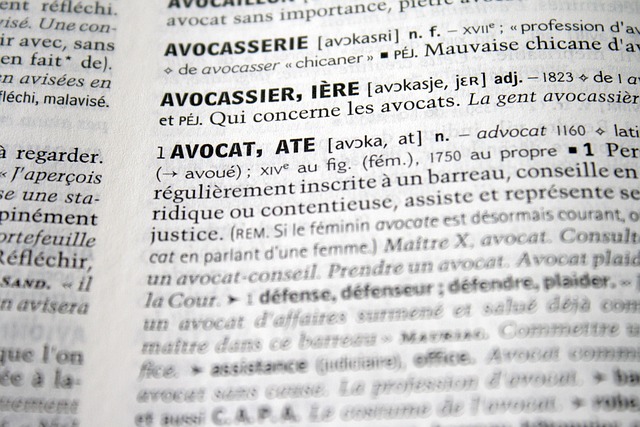Understanding mitigating factors is crucial for successful criminal law outcomes, particularly in sentence reduction. Lawyers analyze case specifics like defendant character and offense circumstances to present compelling evidence. Navigating plea bargains requires strategic balance between client interests and legal realities. Character evidence is a powerful tool for crafting compassionate defenses, especially in white-collar cases. Post-conviction relief offers individuals a chance to seek sentence reduction by challenging trial errors or procedural mistakes. Meticulous legal advocacy is vital for high-stakes cases, uncovering subtle errors that could alter verdicts. Effective strategies focus on these aspects to secure more favorable outcomes.
“Criminal law cases often turn on intricate details and strategic decision-making. This comprehensive guide explores effective strategies that can lead to significant outcomes, focusing on mitigating factors, plea bargains, character evidence, and post-conviction relief. Understanding these key elements is crucial for achieving successful sentence reductions. Dive into these essential topics to navigate the complex landscape of criminal defense, ensuring every angle is considered in pursuit of justice.”
- Understanding Mitigating Factors: Key to Success
- Navigating Plea Bargains: Effective Negotiation Strategies
- Character Evidence: Presenting a Compassionate Defense
- Post-Conviction Relief: Reopening Closed Cases
Understanding Mitigating Factors: Key to Success

Understanding mitigating factors is a crucial element for achieving successful outcomes in criminal law cases, especially when aiming for effective strategies for sentence reduction. These factors, which can include elements such as the defendant’s character, the circumstances leading to the offense, and any relevant psychological or social conditions, play a significant role in shaping the jury’s perception during trial.
By presenting compelling mitigating evidence, lawyers can sway the jury trials in favor of their clients, ultimately helping to win challenging defense verdicts for both corporate and individual clients. Understanding how these factors can be leveraged requires a deep dive into the specifics of each case, allowing for tailored strategies that enhance the chances of a reduced sentence.
Navigating Plea Bargains: Effective Negotiation Strategies

Navigating plea bargains is a delicate art within criminal law, offering defendants an opportunity to gain significant advantages in their cases. Effective negotiation strategies can lead to effective strategies for sentence reduction, allowing individuals to avoid indictment or secure more favorable challenging defense verdicts. A successful defense attorney must balance the defendant’s interests with the reality of the legal system.
This involves understanding the prosecutor’s priorities and leveraging factors unique to the case, such as character evidence or potential community service, to create a compelling argument for leniency. Building strong relationships with prosecutors and showcasing a client’s ability to contribute positively to philanthropic and political communities can also play a surprising role in reaching mutually beneficial agreements.
Character Evidence: Presenting a Compassionate Defense

In criminal law cases, character evidence plays a pivotal role in presenting a compassionate defense. This type of evidence focuses on an individual’s moral character and past conduct to influence the jury’s perception during trial. It can significantly impact the outcome, especially when it comes to achieving extraordinary results for the accused. By showcasing positive traits and mitigating factors, lawyers can employ effective strategies for sentence reduction, ensuring that justice is served with compassion.
Understanding white collar defense mechanisms is crucial in navigating complex legal scenarios. Lawyers must develop creative approaches to present their clients’ good character, particularly in business-related cases. This strategy not only helps in building a robust defense but also reflects the respective business practices and intentions of the accused. Ultimately, it contributes to a fair judicial process, where outcomes are based on evidence rather than speculative assumptions.
Post-Conviction Relief: Reopening Closed Cases

In many jurisdictions, individuals convicted of crimes have the opportunity to seek post-conviction relief, allowing them to reopen closed cases and explore potential avenues for sentence reduction. This process involves reviewing the original trial and conviction to identify any errors or omissions that may have led to an unfair outcome. Effective strategies for sentence reduction often include challenging the evidence presented during jury trials, examining procedural mistakes made by legal counsel, or arguing against harsh sentencing guidelines.
Across the country, high-stakes cases with significant implications for both the defendant and society at large demand meticulous attention to detail. Navigating these complex scenarios requires a deep understanding of criminal law and an adeptness to uncover subtle yet crucial errors that could have altered the verdict. By employing these effective strategies, individuals can present compelling arguments to reopen their cases and potentially secure more favorable outcomes, demonstrating the importance of meticulous legal advocacy in ensuring justice is served.
In navigating complex criminal law cases, understanding mitigating factors, negotiating plea bargains strategically, presenting compelling character evidence, and exploring post-conviction relief are all effective strategies for sentence reduction. By mastering these key aspects, legal professionals can foster more just outcomes, ensuring that each case is meticulously evaluated and that every defendant receives a fair chance at a reduced sentence. Effective strategies for sentence reduction require a nuanced approach, but the rewards in terms of social justice and individual rehabilitation are significant.






